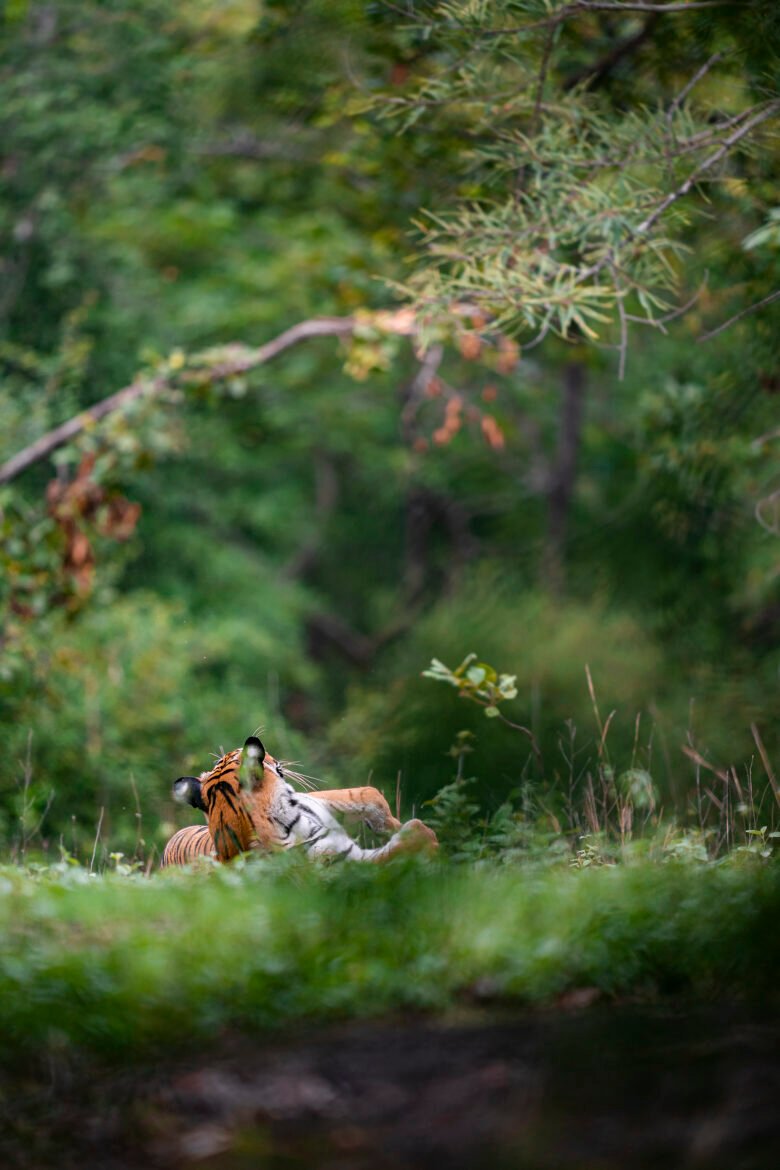Depends on who you ask but here’s our two cents-
When managed responsibly, tiger tourism can play a vital role in protecting tiger populations and their ecosystems. The revenue generated can be used to fund anti-poaching efforts, habitat restoration, and community development programs. Additionally, tiger tourism can help to raise awareness about the importance of conserving these magnificent animals- When Managed Responsibly.

But there’s a catch
However, the rapid growth of tiger tourism has raised concerns about its potential negative impacts. Mass tourism can disrupt the natural behavior of tigers, leading to increased stress and disturbance and affecting the animal’s ability to hunt, breed, and raise its young. The current state is such that at a given tiger sighting, there can be upto 40 vehicles surrounding that single tiger. Imagine that. Imagine what goes on in an animal’s mind while being surrounded like that- and that too an apex predator. How would you feel?

Mass-tourism can also alter the distribution and abundance of prey species, and as the demand for tiger safaris increases, overexploitation of resources happens, especially firewood and water. More and more land is occupied to build mass accommodation options in forest peripheries, accommodations that end up causing more harm to the environment, be it by the way of plastic usage or the dumping of untreated water. This can lead (and is leading) to extreme environmental degradation.
Finding the Happy Medium
Addressing these challenges is essential, and the best way to do it is to adopt ethical and responsible tourism practices. One approach is to focus on sustainable safaris that prioritize the well-being of tigers and minimize their impact on the environment.
Opt for small group tours to reduce your carbon footprint and overall disturbance, go expert guides with a commitment to responsible tourism practices, who know exactly how to offer the best viewing experience without disturbing the animal, choose eco-friendly stays.

We know what you’re thinking, and we understand that sustainability isn’t always affordable. But just think about how different your viewing experience would be if you go on a crowded mass tiger safari, knowing the negative impact you vehicle alone is causing. versus if you go on an ethical and sustainable safari experience with Ameliya, knowing that not only are you minimizing your negative impact on the wildlife, but just by the act of going on a sustainable safari with Ameliya, you’re also contribution towards wildlife conservation and wilderness preservation efforts.




By choosing Ameliya’s high-end, sustainable safaris, you can contribute to the conservation of tigers and their habitats while enjoying a truly unforgettable experience. These safaris often support local communities and prioritize ethical practices, ensuring that the benefits of tiger tourism are shared equitably.
Coming back to the question at hand though-
Tiger safaris are not ‘turning toxic’. It is certainly a delicate balance to maintain though, one that is essential for the future of India’s tiger populations.


